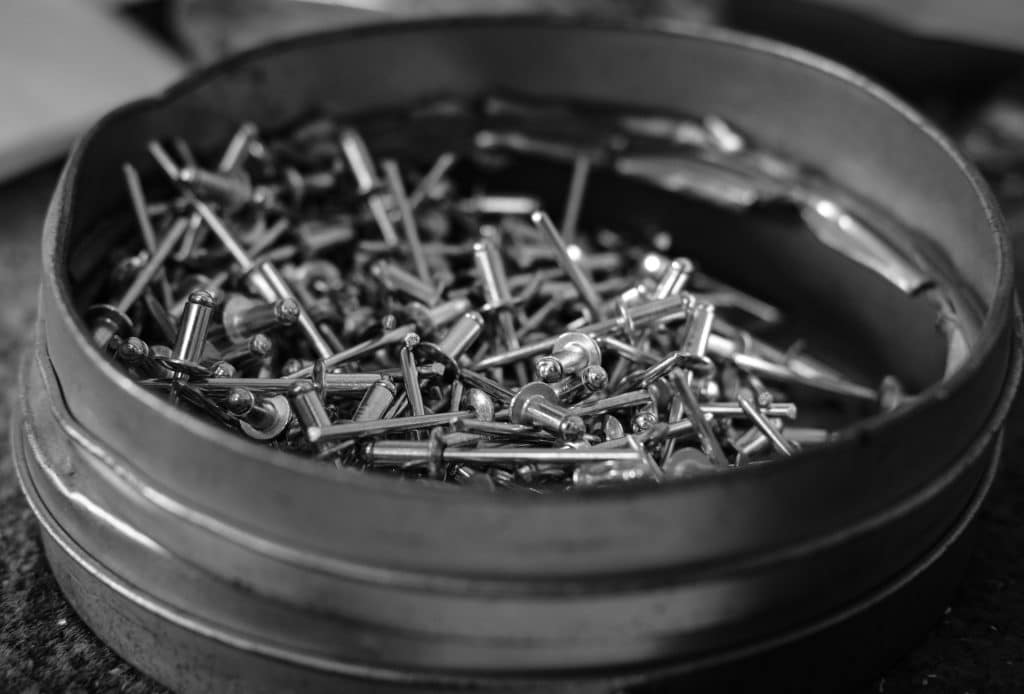If you’re involved in construction, you’ve likely heard of anchor bolts. But what exactly are they? Anchor bolts are fasteners used to connect structural and non-structural elements to concrete. They transfer different types of load, including tension forces and shear forces. Anchor bolts can be made of various materials, including steel, and come in different sizes and designs.
Anchor bolts are essential for many construction projects, including building foundations, bridges, and towers. They are used to secure heavy machinery, equipment, and structures to concrete surfaces. Anchor bolts are also used to attach concrete walls to floors, roofs, and other walls. They are crucial for ensuring the stability and safety of structures, particularly in areas prone to natural disasters such as earthquakes and hurricanes.
Fastening Specialists is a trusted wholesale distributor of anchor bolts and other fasteners for over 65 years. With a long list of industries served, you can trust the specialists at Fastening Specialists for the best in product value, insight, code expertise, and order fulfillment. When it comes to anchor bolts, it’s essential to choose the right size and type for your project to ensure the safety and stability of the structure. The team at Fastening Specialists provides advice and best use-cases, but always check with local building codes and engineers for correct usage instructions.
Types of Anchor Bolts
When it comes to anchor bolts, there are several types to choose from depending on the specific application. Here are some of the most common types of anchor bolts:
Expansion Anchors
Expansion anchors, also known as wedge anchors, are designed to expand as the bolt is tightened, creating a secure hold in the concrete. These anchors are ideal for heavy-duty applications and can be used in both solid and hollow concrete.
Sleeve Anchors
Sleeve anchors are another type of anchor bolt that are commonly used in concrete applications. These anchors are designed to expand within the hole as the bolt is tightened, creating a secure hold. Sleeve anchors are ideal for medium-duty applications and are available in a variety of sizes.
Chemical and Adhesive Anchors
Chemical and adhesive anchors are a popular choice for applications where expansion anchors or sleeve anchors are not suitable. These anchors use a chemical adhesive to create a strong bond between the anchor and the concrete. They are ideal for overhead applications and can be used in both solid and hollow concrete.
Screw Anchors and Hammer-Set Anchors
Screw anchors and hammer-set anchors are both designed for use in solid concrete and can be used in light to medium-duty applications. Screw anchors are installed by drilling a hole and then screwing the anchor into place, while hammer-set anchors are installed by driving the anchor into the concrete using a hammer.
Cast-In-Place Anchors
Cast-in-place anchors are installed during the pouring of the concrete and are designed to provide a secure hold for heavy-duty applications. These anchors are ideal for applications where the anchor will be subjected to heavy loads or high stress.
When selecting the right anchor bolt for your application, it is important to consider the specific requirements of the job. Factors such as load capacity, substrate material, and environmental conditions should all be taken into account.
As a trusted wholesale distributor for over 65 years, Fastening Specialists is the best option for all your fastening needs. Our experts can provide advice and best use-cases, but always check with local building codes and engineers for correct usage instructions.
Materials and Design
Material Selection
When it comes to anchor bolt selection, the material used is critical to ensuring the longevity and safety of the installation. The most common materials used for anchor bolts are carbon steel and stainless steel. Carbon steel is typically used for indoor applications, while stainless steel is used for outdoor and corrosive environments. Other materials such as aluminum and bronze can be used for specific applications where weight or corrosion resistance is a concern.
Dimensions and Load Capacity
The diameter and length of anchor bolts are important factors in determining their load capacity. The diameter of the bolt should be chosen based on the size of the hole drilled into the base material. The length of the bolt should be chosen based on the thickness of the base material and the depth of the hole.
The load capacity of an anchor bolt is determined by the strength of the material and the design of the bolt. The strength of the material is determined by the yield strength and tensile strength of the material. The design of the bolt includes the thread type, pitch, and spacing.
Head, Nut, and Washer Components
The head, nut, and washer components of anchor bolts are essential to their performance. The head of the bolt is designed to provide a bearing surface for the load. The nut is used to secure the bolt to the base material, while the washer is used to distribute the load evenly across the base material.
There are several types of heads, nuts, and washers available, each designed for specific applications. For example, hex heads are commonly used for general applications, while square heads are used for heavy-duty applications. The type of nut used depends on the design of the bolt and the application. The washer used should be matched to the diameter of the bolt and the application.
Fastening Specialists, a trusted wholesale distributor for over 65 years, provides a wide range of anchor bolts and fasteners. We are specialists in this field, offering a long list of sizes, applications, features, designs, materials, coatings, and SKU names. Our expertise in the field ensures that you receive the best in product value, insight, code expertise, and order fulfillment. When it comes to anchor bolts and fasteners, trust the specialists at Fastening Specialists.
The team at Fastening Specialists provides advice and best use-cases, but always check with local building codes and engineers for correct usage instructions.
Installation Process
When it comes to installing anchor bolts, there are a few key steps that you need to follow to ensure a secure and reliable installation. These steps include preparation and tool selection, drilling and embedment, setting and securing anchors, and taking safety measures.
Preparation and Tools Required
Before you start drilling, it is important to select the right tools and protective equipment. You will need a drill, hammer, and anchor bolts. Make sure to choose the appropriate type and size of anchor bolts for your specific application.
It is also important to wear protective equipment such as gloves and eye protection to avoid any injuries during the installation process.
Drilling and Embedment
Once you have selected the appropriate tools and protective equipment, you can begin drilling and embedding the anchor bolts. Follow the manufacturer’s instructions for drilling the holes to the correct depth and diameter. Be sure to remove any debris from the hole before inserting the anchor bolt.
Setting and Securing Anchors
After you have drilled the holes and inserted the anchor bolts, it is time to set and secure them. Use a wrench to tighten the nuts on the anchor bolts to the recommended torque, as specified by the manufacturer’s instructions.
Safety Measures
Throughout the installation process, it is important to prioritize safety. Wear protective equipment such as gloves and eye protection, and follow the manufacturer’s instructions for the specific type of anchor bolt you are using.
As a trusted wholesale distributor for over 65 years, Fastening Specialists provides a wide range of high-quality fasteners, including DeWalt fasteners, Powers fasteners, and Tie Max Pro fasteners. We are specialists in this field and can provide expert advice and best use-cases for your specific application. However, always check with local building codes and engineers for correct usage instructions.
Remember to follow the installation instructions carefully and prioritize safety at all times to ensure a secure and reliable installation.
Common Applications and Uses
Anchor bolts have a wide range of applications and are used in various industries. They are used to secure and connect different objects to concrete, masonry, or other structural elements. Here are some of the most common applications and uses of anchor bolts.
Structural Support
One of the most common uses of anchor bolts is for structural support. They are used to secure steel columns, beams, and other structural elements to concrete foundations. Anchor bolts are also used to connect precast concrete panels, bridge rails, and other structural components to concrete.
Machinery and Equipment
Anchor bolts are also used to secure machinery and equipment to concrete floors or other structural elements. They are commonly used in manufacturing plants, warehouses, and other industrial settings to secure heavy machinery and equipment. Anchor bolts are also used to secure handrails, guardrails, and other safety equipment to concrete surfaces.
Non-Structural Applications
Anchor bolts are also used in non-structural applications. They are used to secure signs, lighting fixtures, and other non-structural elements to concrete or masonry surfaces. Anchor bolts are also used to secure shelves, cabinets, and other fixtures to walls or floors.
DeWalt fasteners, Powers fasteners, and Tie Max Pro fasteners are some of the most popular brands of anchor bolts. However, there are many types of anchor bolts available, including wedge anchors, sleeve anchors, drop-in anchors, and expansion anchors. Each type of anchor bolt is designed for specific applications and has unique features and benefits.
As a trusted wholesale distributor for over 65 years, Fastening Specialists is the best option for all your fastening needs. We are specialists in this field and provide expert advice, product value, insight, code expertise, and order fulfillment. With so many sizes, applications, features, designs, materials, coatings, and SKU names, we know that fastenings can be overwhelming. Serving a long list of industries, you can trust THE specialists for the best in product value.
The team at Fastening Specialists provides advice and best use-cases, but always check with local building codes and engineers for correct usage instructions.
Maintenance and Inspection
To ensure the safety and durability of anchor bolts, it is important to perform regular maintenance and inspection. This section will cover the routine checking, identifying and addressing issues, and replacement and upgrades of anchor bolts.
Routine Checking
Regular inspection of anchor bolts is essential to ensure their proper functioning. According to Fastening Specialists, it is recommended that inspections are carried out at least once a year, and after any significant weather events or seismic activity. During inspections, check for loose bolts, corrosion, cracks, and deformation.
Identifying and Addressing Issues
If any issues are identified during routine checking, it is important to address them promptly. Loose anchor bolts can be tightened using a torque wrench to the manufacturer’s specifications. If there is corrosion, it can be removed using a wire brush and then the bolts can be lubricated with a penetrating oil. If there is damage or deformation, the anchor bolt should be replaced immediately.
Replacement and Upgrades
Anchor bolts that have reached the end of their lifespan or are damaged beyond repair should be replaced. It is important to choose the right anchor bolt for the job. According to The Constructor, there are various types of anchor bolts available, including wedge anchors, sleeve anchors, and drop-in anchors. Each type has its own advantages and disadvantages, so it is important to choose the right one for the job.
When it comes to replacement and upgrades, it is important to choose a trusted wholesale distributor. Fastening Specialists has been a trusted wholesale distributor for over 65 years and is a specialist in the field. With a wide variety of anchor bolts available from top brands such as DeWalt fasteners, Powers fasteners, and Tie Max Pro fasteners, you can trust Fastening Specialists for the best in product value, insight, and code expertise.
The team at Fastening Specialists provides advice and best use-cases, but always check with local building codes and engineers for correct usage instructions.

